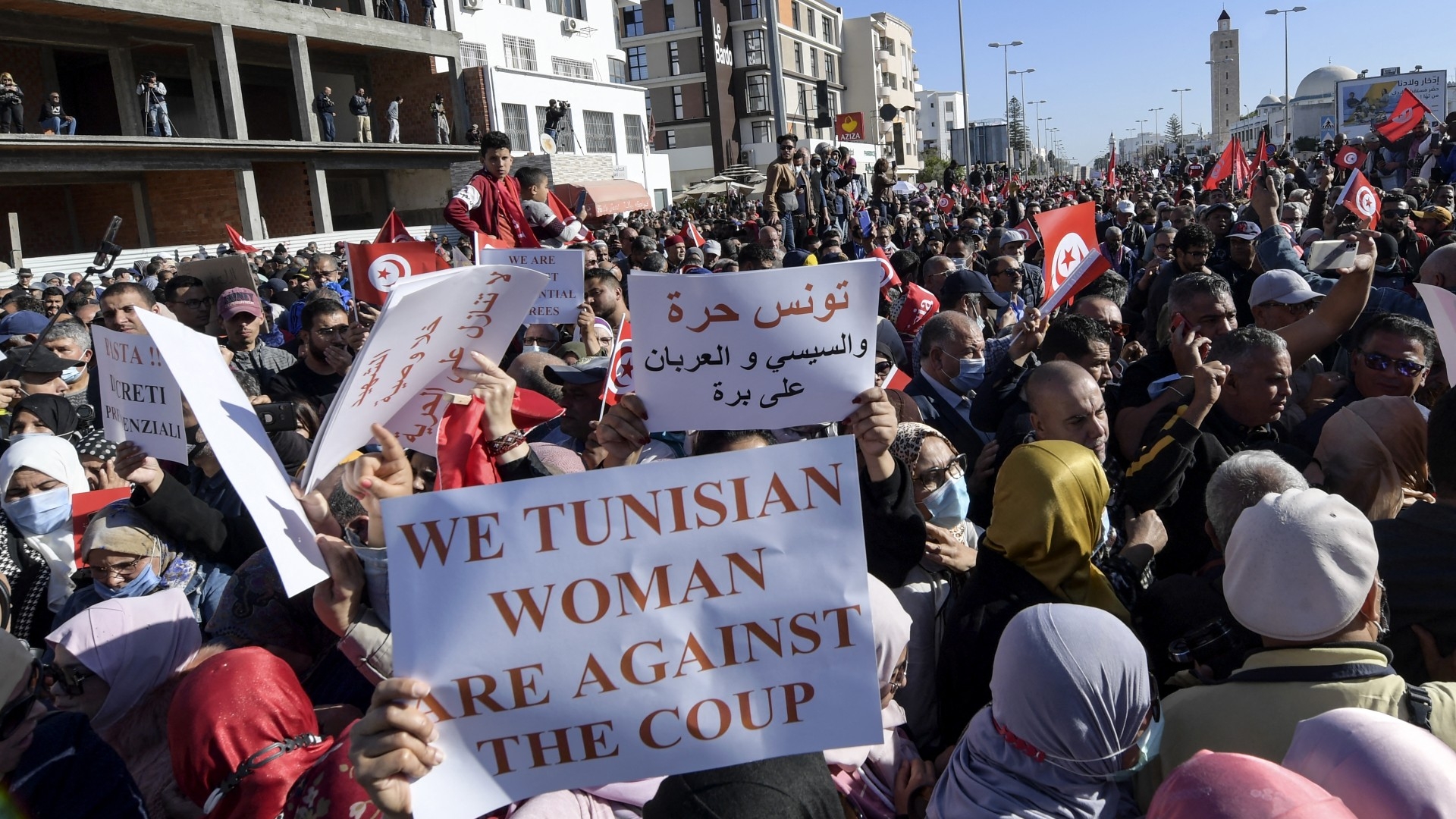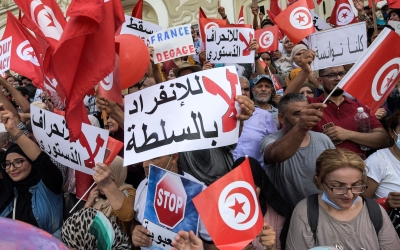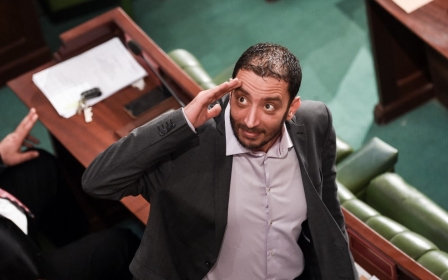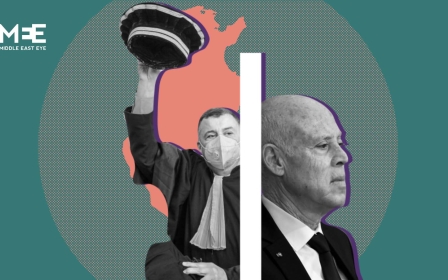Biden urged to press Tunisia's Saied on restoring democracy

Nearly a dozen former US ambassadors have urged President Joe Biden to pressure his Tunisian counterpart, Kais Saied, to reverse his autocratic moves and restore democracy in the cradle of the Arab Spring uprising.
In a letter sent to the US president on Thursday, a group of 50 ex-diplomats and experts, including three former envoys to Tunisia, called on Biden to press Saied to "take concrete steps to return Tunisia to democratic governance".
Otherwise, the US should apply conditions to its assistance to the country, including bilateral aid and loan guarantees, as well as support for loans from international financial institutions such as the International Monetary Fund, the letter said.
"Saving Tunisia's democracy is ultimately up to Tunisians, but the United States should do whatever it can to help, both to protect U.S. interests and to uphold democratic values," said the letter, led by the Project on Middle East Democracy (Pomed).
'Saving Tunisia's democracy is ultimately up to Tunisians, but the United States should do whatever it can to help'
- Letter to US President Joe Biden
Earlier this month, Saied cemented his grip on power by dissolving the Supreme Judicial Council - the body that deals with judicial independence - and granting himself control over the selection and promotion of judges.
The move came months after he suspended parliament and assumed executive powers in a move seen by critics as a coup.
In addition to freezing parliament, he also shut down the country's independent National Anti-Corruption Authority and sidelined the Independent High Authority for Elections.
A decision to stop assistance to Tunisia would likely have serious ramifications for the north African nation, which is heavily in debt and reliant on nearly $7bn in loans to fund its budget.
Tunis and the IMF are in preliminary talks, with an eye on a potential multibillion-dollar rescue deal for an economy battered by the Covid-19 pandemic over the past several years.
Ambiguous US response
While many US lawmakers criticised Saied's moves and called on Biden to denounce them, the administration's response has so far been filled with ambiguity.
Washington has urged Saied to restore the country’s parliamentary democracy, but stopped short of calling the power grab a coup.
The US has supported the country with infusions of aid, contributing more than $1.4bn evenly spaced out between economic and security assistance since the Arab Spring.
The United Nations Agency for International Development (USAID) has also sent nearly $685m to Tunisia since 2011, and that support has continued unabetted.
In December, when Saied announced a political "roadmap", the State Department issued a statement welcoming the news and saying it remained "committed to the U.S.-Tunisia partnership".
In their letter, the experts noted that the roadmap lacked detail, transparency, or input from other Tunisian political actors.
"Far from being a path back to democracy, the roadmap extends Saied’s unchecked power through at least the end of this year," they said.
"Saied’s reversal of Tunisia's hard-won democratic gains threatens the foundations of the strong post-2011 U.S.-Tunisia relationship."
Middle East Eye propose une couverture et une analyse indépendantes et incomparables du Moyen-Orient, de l’Afrique du Nord et d’autres régions du monde. Pour en savoir plus sur la reprise de ce contenu et les frais qui s’appliquent, veuillez remplir ce formulaire [en anglais]. Pour en savoir plus sur MEE, cliquez ici [en anglais].





